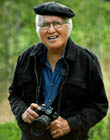|
|
This topic comprises 2 pages: 1 2
|
|
Author
|
Topic: The Pianist
|
Gerard S. Cohen
Jedi Master Film Handler

Posts: 975
From: Forest Hills, NY, USA
Registered: Sep 2001
|
 posted 01-12-2003 02:55 PM
posted 01-12-2003 02:55 PM




Vewed at the Kew Gardens (Twin), an independent art house in Queens, NYC, Saturday, Jan. 11,'02. all shows sold out except for
some seats in first three rows; 7 PM nearly all seniors, 9 PM mostly seniors and middle-aged, while 10 PM attracted mostly dating couples.
Coming to grips with the enormity of the Holocaust has been most difficult for feature filmmakers, in part because the medium is thought of as one primarily for entertainment, especially in the U.S.
"The Sorrow And The Pity", one of the earliest attempts, was French,
symbolic, and poetic. Jewish directors must have felt an inner compulsion to treat the topic, if only to prevent its lessons from being lost in the collective memory of mankind. They embody the Passover ritual of reinacting the story of enslavement in Egypt, and the Exodus: "And thou shall tell thy sons, on that day..."
Steven Spielberg and Roman Polanski waited until their skills and ouvre had matured, although Roman Polansky treated the theme of anti-semitism as early as his film-school thesis film, "Two Men And A Wardrobe." And he has lived to experience personal horrors, as his wife, Sharon Tate, was butchered, along with his unborn child.
While both directors treated the history of the Holocaust
in the years about 1940 through 1945,and although both chose an actual historical character as a unifying device, there are differences in construction, emphasis and technique.
Polanski's protagonist in "The Pianist", Mr Spielman, a middle-class musical virtuoso, is aided in his attempts to escape death, by both Jews and Gentiles, but his survival depends more on mere chance, as we see indiscriminate and sadistic acts of random murder throughout.
Spielberg's Herr Schindler was an establishment figure, whose very existance was not at stake, though he took risks to save others.
Polanski reveals the complicity of the Judenrat and the appeals of the resistance fighters, though there are no heroes or heroic acts in his film; most of the underground fighters are doomed.
I found the film held my interest throughout, despite its length
(2hrs, 45min with trailers). My wife's objection was that the cruel antisemitism of the Poles , after the end of WWII, was not shown. (I met a Jewish woman in New Jersey, who bleached her hair for safety before she returned to Poland after the liberation.) Yet the film was based on the account of the real Mr. Spielman, who lived to the age of 88 in the year 2000.
Where Spielberg chose monochrome, with only touches of color, Polanski filmed in color, but filtered it out for some of the outdoor military action and devastation scenes. Where Spielberg used Yiddish cradle song melodies for heartbreaking contrast, Polanski uses classical piano music sparingly yet effectively.
Unfortunately, the theatre lights were raised as soon as the end credits began, while images of the Pianist playing with the Warsaw Symphony were onscreen as title background, and the audience was enjoying the Beethoven * concerto. I had to shield my eyes to read the credits, noticing most of those employed had Polish and German names, very many historically Jewish. More than half the patrons remained to the end of the titles. I couldn't tell whether they applauded the film, since the sound track provided a crescendo of applause for the final musical performance.
* See Claude's correction below.
[ 01-15-2003, 09:07 PM: Message edited by: Gerard S. Cohen ]
| IP: Logged
|
|
Michael Schaffer
"Where is the
Boardwalk Hotel?"

Posts: 4143
From: Boston, MA
Registered: Apr 2002
|
 posted 01-12-2003 04:45 PM
posted 01-12-2003 04:45 PM





The music during the end credits was not Beethoven! I do not know what it was, but it was far too crappy for Beethoven.
Anyway, I hated this movie very much. It makes everything look rather harmless, a bit dire, but not too horrible either. There are no real characters, even the protagonist is as wooden as a puppet. Throughout the movie, the only difference between Jewish and German characters is that one group has to work all the time and the other wears grey uniforms and terrorizes the first. Then, near the end, there is a German officer who plays the piano himself, so he helps him...OK, so the difference between good and bad is if you play the piano?
The whole war and holocaust history is too serious to serve as a background for burnt-out directors to make yet another pretentious film.
| IP: Logged
|
|
|
|
|
|
|
|
|
|
Michael Schaffer
"Where is the
Boardwalk Hotel?"

Posts: 4143
From: Boston, MA
Registered: Apr 2002
|
 posted 01-15-2003 09:58 PM
posted 01-15-2003 09:58 PM





quote:
By the way, unless I was not paying attention, there were no indication that the Nazi officer was also a pianist and was his reason for not arresting Mr. Spielman and kindness he had bestowed to the Jew by providing him with food and his coat
Spielman hears him play (the Moonshine sonata) when he hides in the house. Also, I didn`t say Beethoven was crappy, but that the music in the end credits was definetely not a Beethoven concerto.
There were many highly educated and "cultured" Nazis and others who may not have been party members but opportunistically followed. For instance, Dr.Dr. Josef Mengele, the "Death Angel of Auschwitz", a highly "sophisticated" man who conducted horrible experiments on prisoners. What made people like him tick? Why did others help?
Why did the officer help Spielman? If he was a kind and cultured man, why did he take part in the atrocities the Wehrmacht and SS performed? Did he help Spielman because he thought it would ease his conscience? Was he just tired of a war that he had understood to be lost?
These are very important questions which a serious treatment of the holocaust should look into rather than just show "good" and "bad" people.
I would almost go as far as saying that movies like this provide "holocaust entertainment". You can watch it, think, oh how bad all that was, and then walk out of the theatre without thinking about all it.
"Schindler`s List" on the other hand provided a lot of food for thought and a wealth of characters to think about, and some very intense scenes.
Just one or two days after seeing "The Pianist", I watched a documentary on the Warsaw ghetto on German TV (we have documentaries about the Nazi era all the time, because people mustn`t forget what happened), and it really made the movie appear like a shallow Sunday afternoon serial.
| IP: Logged
|
|
|
|
|
|
Gerard S. Cohen
Jedi Master Film Handler

Posts: 975
From: Forest Hills, NY, USA
Registered: Sep 2001
|
 posted 01-16-2003 09:56 PM
posted 01-16-2003 09:56 PM




quote:
But especially here in Germany, people have been very active studying the holocaust and what led to it in order to gain some understanding.
quote:
questions whether this is a serious treatment of the subject have been ignored
In my teens I read a report by the Anti-Defamation League entitled "The Roots of Prejudice" that summarized and explained the results of research. I believe it explored five causes of religious, racial, ethnic or class hatreds, among them economic, misguided religious teachings, psychological, etc. Then I discovered case studies of Sigmund Freud which explored the intense hatred toward Jews of several of his patients. These pioneering studies must have been followed by greater, more revealing researches, yet it seems so little has spread to social understanding and education in the world, and even in the US, today. We have lived through the horrific slaughter in Cambodia, Rwanda, Bosnia, Indonesia, Israel and elsewhere
as though the causes were unknown.
The hatreds that led to "Hitler's Willing Executioners" go back centuries in origin, and the forementioned films hint at some of the causes. What became of all the houses, apartments and businesses when Jews were moved to ghettoes? We see Schindler stretch out comfortably in a bedroom from which a Jewish family had been driven in the previous reel. We see their pitiful suitcases emptied, the fillings stripped from victims teeth, the bodies reduced to soap and fertilizer. We see Spielman hidden in locked apartments vacated by Jews. Today there are uncounted thousands living in such rooms who do not reveal how their families came to possess them, and the grandchildren visiting from America can only look and wonder, for it takes years of legal work to register a claim for restitution, and most are denied. Yes, killing Jews, like abolishing all debts to Jews, whether from kings or businessmen, has been a form of economic enrichment from the middle ages through the Spanish expulsion and beyond.
Anti-semitism abounds today, in Poland, Ukrain, France, etc, often disguised as politics. ("Some Austrians would have us believe Hitler was German, and Beethoven, Austrian.") Without deep-seated anti-semitism throughout much of Europe, Hitler would not have risen to power. Does the film "Max reveal this?
But while these films reveal some of the economic causes, those that spring from unresolved oedipal conflicts, or from mistaken religious education, may not be visible therin. Was there even a possible hint in "Gentlemen's Agreement?"
Fortunately, the Second Vatican Council and the encyclicals of the present Pope, are reducing that Christian anti-semitism that was a product of poor parochial teaching, which may be a beginning...
| IP: Logged
|
|
Michael Schaffer
"Where is the
Boardwalk Hotel?"

Posts: 4143
From: Boston, MA
Registered: Apr 2002
|
 posted 01-16-2003 11:08 PM
posted 01-16-2003 11:08 PM





You are very well informed, Gerard. The age old deep anti-semitism is definitely one of the major causes for the holocaust. But there are many others as well which should be explored as well. What is really hard to understand is that until the early 20th century, Germany was one of the most liberal and open-minded areas in Europe (Remember that the Reformation took place here). This is one of the reasons why music and literature blossomed in Germany in the 18th and 19th centuries, and why there were so many progressive scientists and thinkers. Many Jews had immigrated into Germany because they were safer there. Jews rose to very high political and military offices under the Prussian Empire. So what caused the later events? Of course, nobody can give simple answers, but that is one of the main tasks for any treatment of the holocaust.
quote:
Fortunately, the Second Vatican Council and the encyclicals of the present Pope, are reducing that Christian anti-semitism that was a product of poor parochial teaching, which may be a beginning...
Maybe a few centuries or millenia too late...Are you aware of the role the Vatican played during the holocaust? They did nothing even though there were Catholics who begged of their church to help in the name of humanity. In the Western German city of Muenster, there was a Bishop or Cardinal who was feared by the Nazis because he openly preached against them. The churches were still very strong at that time, so they didn`t dare touch the higher church officials who opposed them. Unfortunately, there were only a few who had the courage. Do you know which state was the first to diplomatically acknowledge Hitler`s regime in 1933? And who helped countless Nazis get away to South America?
| IP: Logged
|
|
|
|
Michael Schaffer
"Where is the
Boardwalk Hotel?"

Posts: 4143
From: Boston, MA
Registered: Apr 2002
|
 posted 01-18-2003 09:46 AM
posted 01-18-2003 09:46 AM





Well, the Vatican of course! When Hitler came to power in 1933, many states didn`t know how they should take the news. The very aggressive agenda of the Nazis was already well known and feared in Europe. The Vatican rushed to help and acknowledged Hitler. In return, he introduced the church tax. That means that the church tax was automatically subtracted from everybody`s income and passed on to the church.
After the war, many Nazis escaped via Italy to Southern America on routes set up by the Vatican, among them the mentioned Mengele or Adolf Eichmann, who handled the "logistics" of the holocaust. He was one of the few who was brought to justice eventually, as the Mossad (Israeli secret service) kidnapped him in South America and brought him to Israel where he was tried and hanged.
The Pope during WWII had been Vatican Ambassador to Germany during the 30s. It is very unfortunate that there is still a street in Berlin named after his civilian name (Pacelli), but there is a house in that street named after Martin Niemoeller, a Protestant priest who opposed the Nazis and was hanged by a hook like a pig just weeks before the end of the regime. There was a movement once to take Pacelli`s name off the street but it was denied because nobody wanted to offend the Vatican`s sensibilities. By the way, I was baptised in the church where Niemoeller preached until he was dragged away during the night while Pacelli sat on his heavenly throne.
| IP: Logged
|
|
|
|
Michael Schaffer
"Where is the
Boardwalk Hotel?"

Posts: 4143
From: Boston, MA
Registered: Apr 2002
|
 posted 01-18-2003 10:29 PM
posted 01-18-2003 10:29 PM





This is VERY complicated: For the longest time Germany was not a national state but rather a cultural region identified only by the language. There were hundreds of small states, kingdoms, duchies and some independent towns governed by elected senates. The German-speaking part of the Austro-Hungarian empire was seen as a German state, not because it belonged to "Germany", which didn`t exist as a state, but because it was a German-speaking state which was ruled by the Emperor in Vienna. The Emperor for a long time also acted as some kind of protector of the smaller German states. In those days before the advent of national states, people would identify themselves culturally by what language they spoke and politically by whose subject they were. Somebody would not be "from Germany" but a subject of Bavaria, Prussia, Wuerttemberg, Thueringen, Westfalia etc.
It is therefore fair to say that "Germany" and "Austria" have the same culture. This is a sensitive subject today, as the founding of the German Empire in 1871 created two big distinct states. Hitler was from Austria, but could join the German army (in Bavaria) and eventual become dictator of the German "Reich" because it was not seen as a big difference if you were from Austria or one of the German states which now were collectively ruled by the other Emperor in Berlin (who before 1871 was the King of Prussia).
The Austro-Hungarian Empire virtually vanished after WW I. The German-speaking part became the Austrian Republic which was united with Germany by Hitler between 1938-45. That is what makes the whole subject very sensitive - people tend to avoid mentioning modern-day Germany and Austria in one context for fear of being suspected of sharing Hitler`s "Pan-Germanic" views.
Still, if we look at the cultural history over the centuries, we have to look at the culture of German-speaking states in general. The people who contributed to "German" culture were from all sorts of places and states.
Wien was an important musical center and so many musicians went to live there. But people like Beethoven (from Bonn), Brahms (from Hamburg) or Richard Strauss (from Munich) were never seen as "foreigners" "from Germany" but just as people from another German state. Another center of gravity was Weimar in the state of Thueringen which attracted a lot of people starting with Goethe and Schiller. Again, both were from different German states but were attracted by the liberal climate in Weimar. Other important cities were Leipzig, Dresden or Berlin. Or Prague - today the capital of the Czekh Republic, in the days of Franz Kafka a half German, half Czekh city in the Austrian Empire. What is Kafka? Is he a German writer or an Austrian? He was a subject of the Austrian Emperor, but you can`t say he lived in Austria. Is he a Czekh writer? But he wrote in German. So what is he? Modern political terms cannot cover the complexity of cultural history.
To sum this up, despite potential misunderstandings, it is not possible to look at German culture as divided into a "German" and "Austrian" branch.
The concept of national states which in turn led to nationalistic excesses only came into existence in the late 19th century. So there is no contradiction at all in the fact that a lot of "German" artists lived in the "Austrian" city Wien.
| IP: Logged
|
|
|
|
All times are Central (GMT -6:00)
|
This topic comprises 2 pages: 1 2
|
Powered by Infopop Corporation
UBB.classicTM
6.3.1.2
The Film-Tech Forums are designed for various members related to the cinema industry to express their opinions, viewpoints and testimonials on various products, services and events based upon speculation, personal knowledge and factual information through use, therefore all views represented here allow no liability upon the publishers of this web site and the owners of said views assume no liability for any ill will resulting from these postings. The posts made here are for educational as well as entertainment purposes and as such anyone viewing this portion of the website must accept these views as statements of the author of that opinion
and agrees to release the authors from any and all liability.
|

 Home
Home
 Products
Products
 Store
Store
 Forum
Forum
 Warehouse
Warehouse
 Contact Us
Contact Us




 Printer-friendly view of this topic
Printer-friendly view of this topic









![[Wink]](wink.gif)



